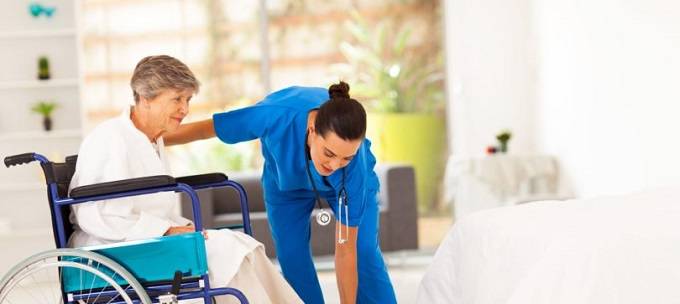Cancer caregivers need support, too

Andile Tshuma
Many times during conversations about cancer, a lot of focus is on the victim, their sickness and how they should fight to get better.
Less is said about the caregivers. Caregivers of cancer patients need support too as they are at high risk of depression, stress, stroke and other mental and psychological health related challenges.
However, caregivers of cancer patients are some of the unsung heroes in our communities as they make numerous sacrifices to take care of their loved ones.
In most cases, caregivers often have to give up their jobs or careers and focus on caring for the sick.
Their own health is neglected as they dedicate their time and energy to nursing cancer patients, be it spouses, children or parents.
The role of family caregivers is a significant factor in the treatment of a patient. Spouses and parents are usually the primary caregivers and do not receive education or preparation for their role as a caregiver.
Therefore, caregivers require support and education to meet these demands. They play a significant role in the management of their loved ones.
A caregiver of a cancer patient does not lead a normal life. It’s a fact. Last week, I shared a moment with one Ms Taboka Dube, a Bulawayo resident and civil servant.
Her son was diagnosed with cancer and life has taken its toll on both of them.
She was appealing for assistance for her 15-year-old son to travel to India for treatment as chemotherapy has not done much to relieve him of pain.
Ms Dube narrated how much she has to give up in order to care for her son.
While she does everything out of love, a part of her is neglected as she has to prioritise her son.
As a single mother, she is responsible for financially providing for the family as the sole bread winner and for emotionally and socially providing moral support as the mother at home.
She has to run errands and also play the role of the nurse. Ms Dube is a teacher and spends a significant part of her time at school.
This means that her time to take care of her son is divided as she needs to be at her workplace as well.
One would not be wrong to make the assumption that she is deprived of time to herself; to rejuvenate, recharge and be ready for the next day.
As a caregiver to a child who has been diagnosed with cancer, Ms Dube, like many other caregivers, needs moral support and also attention to her health, particularly her psychological wellbeing.
However, due to the fact that she is time deprived, all she does is work and care for her son.
She probably does not realise that she may also need time to rest and maintain her health so as to be able to take care of others.
Caregivers always suffer from fatigue and lack of sleep as they normally spend hours attending to sick dependants at home.
They often express their concerns of meeting the needs of their loved ones and can be vulnerable both physically and emotionally in their new roles.
Fatigue being the number one concern for patients and their families, many need assistance with meals, personal care, transportation, child care and housekeeping.
Obviously, this is not the time for a patient or family to try and manage the complexities of cancer care alone.
As demands for care giving increases and as patients survive longer, caregivers need to be aware of the physical and emotional impact on their health as well as the resources that are available for support.
Caregivers are at high risk of depression, anxiety and increased decline in their physical health.
There are many things caregivers can do to help avoid burn out and tend to their health needs and quality of life.
It is good for caregivers to also create a personal support system as no one can do this alone and it can literally “take a village” to provide necessary care and support for a loved one.
First and foremost as a caregiver, one must learn to accept the offers of help and be prepared to suggest areas that need assistance with.
It is relieving and enriching to reach out to family and friends who may not physically be in the same area but can attend to other tasks that may need attention and require time that a caregiver often does not have, such as phone calls.
Caregivers can also involve organisations, churches and volunteers in their programme to care for their loved ones.
Caregivers must not forget about themselves while they take care of patients because self care is an important part of this equation.
It is important to attend to their emotional, physical, social and spiritual needs.
Attending to your social life and enjoying some humour will help rejuvenate you and lessen your feelings of isolation.
It is healthy and important to stay connected with friends or maintain activities or hobbies that are important and enjoyable to you.
While care giving can be straining, some people can find it fulfilling, especially parents. In spite of the exhausting challenges of care giving, it can enrich a person’s life.
Caregivers often feel a sense of satisfaction knowing they helped their loved one in a time of great need. Additionally, care giving often brings people closer together.











Comments